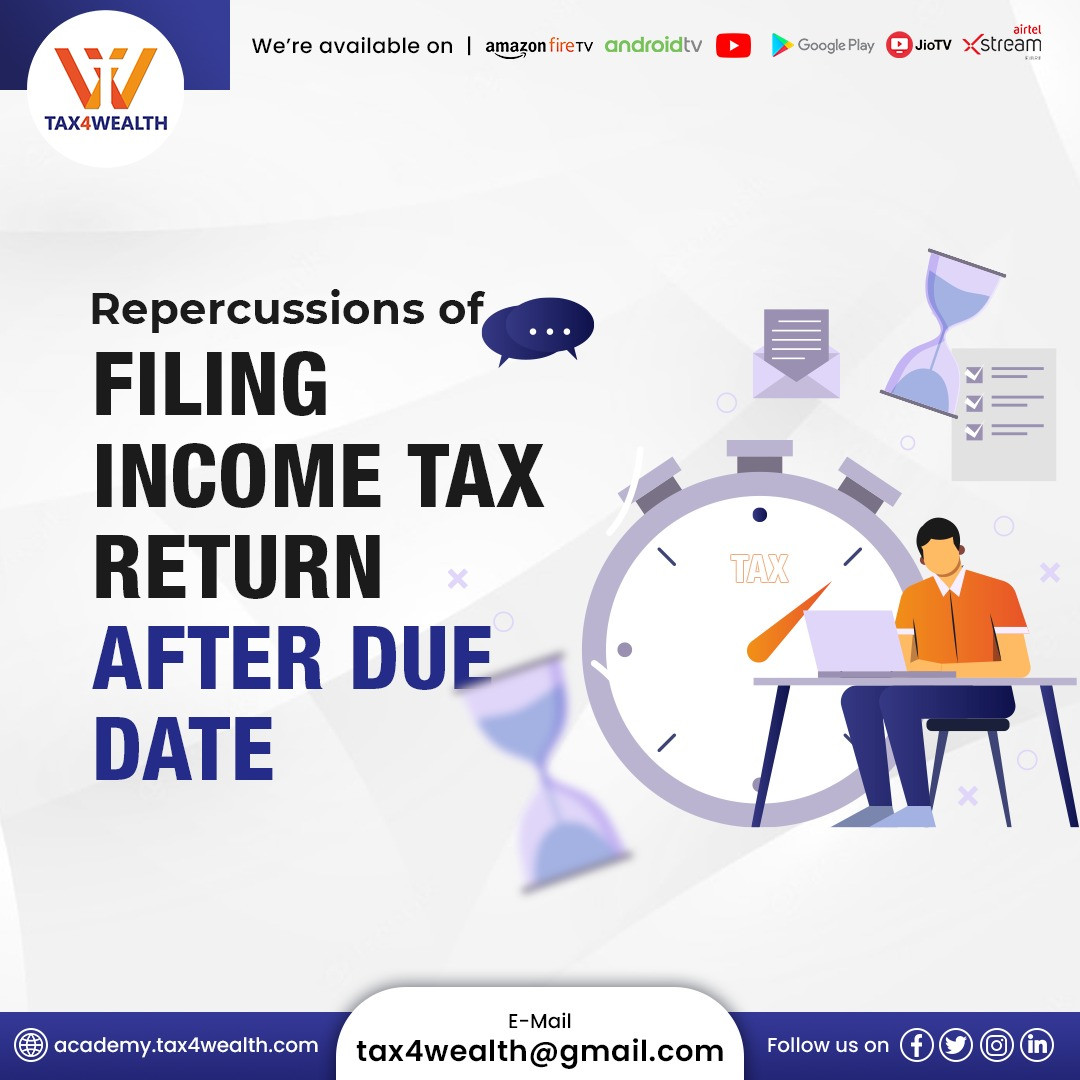
Repercussions of Filing Income Tax Return After Due Date
The final date for filing Income Tax Returns for individual taxpayers is typically July 31st of the assessment year that follows a specific financial year. This is the due date for Filing ITR Online for corporate assesses and other assesses who are required to have their accounts audited under the Income Tax Act of 1961 or any other law.
Taxpayers who submit their IT returns after the deadline may be penalized for filing them late. Additionally, individuals can be subject to a few penalties. The following is a discussion of these effects:
The CBDT occasionally has the right to extend the deadline for reporting taxes after that date.
Penalties for Filing ITRs Late and Their Consequences-
There is a fine for filing an income tax return after the deadline. Individuals filing Income tax Returns beyond the due date must incur these penalties:
Also, read; What is e-filing of Income Tax Returns?
1. Penalty under Section 234F
A maximum fee of Rs. 5,000 is imposed on taxpayers who submit their ITR beyond the deadline, under recent changes to section 234F of the IT Act. From FY 2021 forward, the Income Tax Department of India has reduced the maximum fine for submitting taxes late from Rs. 10,000 to Rs.
Therefore, one is not required to pay the late ITR filing penalty if they file their IT return before the deadline. Individuals who submit their returns after the cut-off date must pay a penalty of Rs. 5,000.
The maximum penalty for submitting an ITR late is Rs 1,000 if the total income of the person does not exceed Rs 5 lakhs.
2. Payment of Interest-
According to section 234A, taxpayers who fail to submit their ITR by the deadlines must pay interest of 1% per month, or a fraction of a month, on the unpaid tax amount. If the tax is not paid, ITR filing cannot be done.
The date after the tax filing deadline, which is typically July 31 of a certain assessment year, is when interest will start to be calculated. Longer filing delays would result in greater interest accrual, raising the overall fine for late ITR submission.
3. The Section 271H Penalty-
In addition to the late ITR filing penalty under section 234E, those who fail to submit their TCS or TDS statements by the deadline are subject to a penalty ranging from Rs. 10,000 to Rs. 1,000,000. A punishment of Rs. 200 is imposed under section 234E until TCS or TDS are paid. Let's know the points to be kept in mind before filing income tax returns.
4. Less Time for Returns Revision-
The most recent amendments to the IT Act give those who file ITRs incorrectly a year to fix and update their inaccuracies. Before this change, taxpayers had two years to make any required adjustments.
5. Losses cannot be Carried Forward-
Taxpayers should file their ITRs on or before the deadline if they anticipate losses in their businesses or under the "Capital Gains" heading. As a result, they will be able to roll over those losses to the following year and offset those losses against their future earnings.
6. A Long Wait to Receive Refunds-
If a person is eligible for a refund for overpaid taxes, filing an ITR before to the deadline will enable them to recover their money sooner.
Benefits of Submitting Your Income Tax Return on Time-
Not only is it prudent but filing your taxes early can also provide several advantages. Some notable benefits are:
-
Quicker Visa Processing
Most embassies want copies of your previous years' tax returns to complete your visa. So, submitting your IT returns ahead of time might speed up the processing of your Visa application.
-
Rapid Loan Acceptance
You will find it simpler to obtain approval for a house or car loan if you submit the ITR within the allotted period.
-
Address and Income Verification
When applying for a loan or visa, you can submit an income tax return as verification of your income and address.
Final Word on ITR Penalty:
To avoid negative repercussions and fines for filing Income Tax Returns late, taxpayers should be sure to File ITR Online or offline by the deadlines. In the event of late submission, they should pay the applicable fines before attempting to submit the subsequent by the deadlines.
Also, read; FAQ- Income Tax Certification Course
No comments yet, Be the first to comment.













